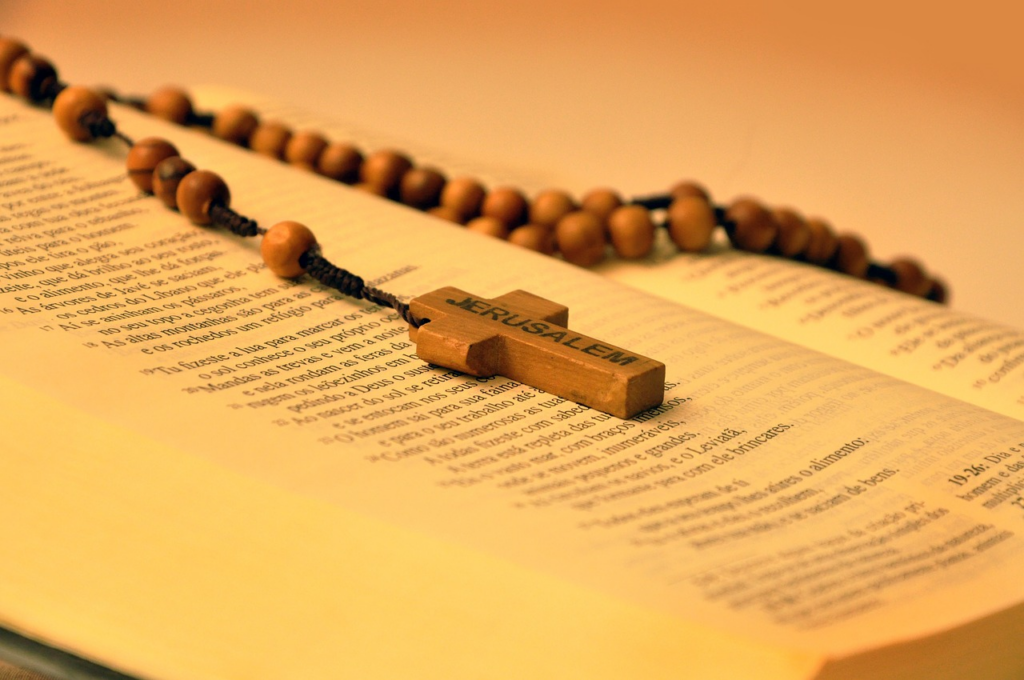The practice of praying the rosary has deep roots in Catholic tradition and has played a significant role in the spiritual lives of millions of people around the world. This article explores the importance of praying the rosary, highlighting its origins, its structure and the intentions behind this powerful form of prayer.
Origins of the Rosary: A Deep Tradition
The rosary has its origins in the monastic tradition, where monks repeated psalms as a form of contemplative prayer. However, the modern form of the rosary, as we know it today, has its roots in the 13th century. The rosary tradition was popularized by Saint Dominic de Gusmão, the founder of the Dominican Order. He believed that prayer was a powerful tool to combat the evils of his time.
The Structure of the Rosary: A Journey of Prayer
The rosary is made up of three parts, each of which focuses on specific mysteries from the life of Jesus and the Virgin Mary. The parts are known as thirds, and each third consists of five mysteries. The mysteries include significant biblical passages, such as the Annunciation, the Agony in the Garden, the Crucifixion and the Resurrection. As the faithful pray, they meditate on these mysteries, immersing themselves in the life of Jesus and seeking to better understand his message of love and redemption.
The repetition of the rosary prayers - the Our Father, the Hail Mary and the Glory Be to the Father - is not a mere mechanical exercise, but a meditative practice that allows the faithful to immerse themselves more deeply in the mysteries of the faith. Each mystery represents a unique aspect of Jesus' life, and praying the rosary is like taking a spiritual journey through these sacred events.
The Importance of Consistency in Praying the Rosary
Praying the rosary regularly offers an opportunity to build spiritual discipline. Consistency in practice strengthens the personal connection with God and creates an atmosphere conducive to spiritual growth. Constant repetition of the prayers not only deepens understanding of the mysteries, but also helps to internalize the virtues exemplified by Jesus and Mary.

In addition, the rosary is an effective way of cultivating patience and perseverance in the spiritual life. As the faithful continue to pray the rosary daily, even when faced with challenges and distractions, they learn to overcome obstacles and maintain a constant focus on God.
The Intentions Behind the Rosary: A Prayer of Intercession
One of the most powerful aspects of the rosary is its ability to serve as a prayer of intercession. By praying for personal intentions and for the needs of the world, the faithful believe they are joining their voices to a prayer tradition that spans centuries. Many Catholics dedicate their rosaries to specific requests, such as health, peace, reconciliation and spiritual guidance.
The Virgin Mary plays a central role in this intercessory aspect of the rosary. Catholics believe that Mary, as the Mother of God, intercedes for them with her Son. When they pray the rosary, they entrust their intentions to Mary's loving intercession, confident that their prayers will be heard.
A Path of Spiritual Depth
Praying the rosary is not just a tradition, but a practice that offers a profound spiritual journey. By immersing themselves in the mysteries of the life of Jesus and the Virgin Mary, the faithful find inspiration, strengthen their faith and experience a more intimate connection with God. Discipline and consistency in praying the rosary not only deepen the individual spiritual life, but also contribute to building a community of faithful united by a rich and meaningful tradition.
Therefore, understanding the importance of praying the rosary goes beyond a religious practice; it is an invitation to a spiritual journey that transforms lives and nourishes the soul. May the faithful find comfort, guidance and, above all, God's loving presence in every prayer they say.
See also: Powerful prayer for everything to work out urgently
January 26th, 2024
With much faith and positivity, she writes for the Oração e Fé daily, bringing messages and Divine teachings to everyone.